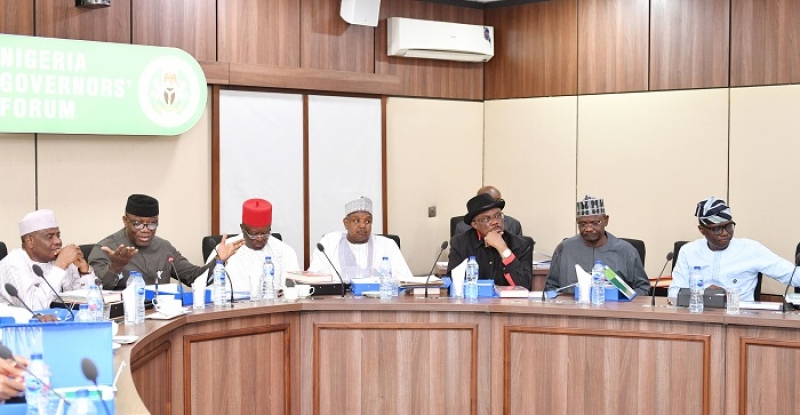The Nigerian Governors’ Forum (NGF) has decided to stop contracting the collection of taxes to consultants to reduce expenditure and combat declining states’ internally generated revenue (IGR).
Speaking at the sixth IGR national peer learning event (PLE) in Abuja on Monday, Kayode Fayemi, NGF chairman and Ekiti state governor, said the huge commission paid out to contractors can be used to boost the finances of states.
Fayemi said the planned review of the policy on revenue collection by states was part of the reforms being considered to boost financial outlooks at the sub-national level.
He said other reforms planned by the states include “ending the contracting-out of tax collections and assessments”.
Advertisement
He said the NGF has decided to increase collaboration among internal revenue services; ministries, departments and agencies (MDAs), and local governments; roll out tax-for-service initiatives; scale-up cashless payments; and deploy geographic information system (GIS) to support effective land administration and property taxes.
According to him, 2020 has presented states with a series of challenges to deal with, ranging from COVID-19 pandemic to the second economic recession in five years.
“Unfortunately, the decline in oil prices that followed the global lockdown and the social unrest, which echoed the demands of the #EndSARS protests, further worsened the country’s economic and social conditions for months,” the governor said.
Advertisement
“This exacerbated the already vulnerable fiscal environment for governments at both the national and sub-national level.
“Other accompanying trends have included rising inflation rate, degrading exchange rate and growing unemployment.”
Fayemi said the need to improve government revenues to adequately service planned expenditures cannot be overemphasised.
According to Fayemi, Ebonyi, Gombe and Yobe states recorded more than 50 percent growth in IGR despite the economic challenges.
Advertisement
In her remarks, Zainab Ahmed, minister of finance, budget and national planning, said the finance bill 2020 will amend extant laws to facilitate and strengthen revenue mobilisation and growth in 2021.
She said the laws to be amended include the capital gains tax act; companies income tax act; personal income tax act; tertiary education trust fund (establishment) act; customs and excise tariff (consolidated) act.
Others are value-added tax act; Federal Inland Revenue Services act; Nigerian export processing zone act; companies and allied matters act (CAMA) 2020; and public procurement act.
Advertisement
Add a comment






